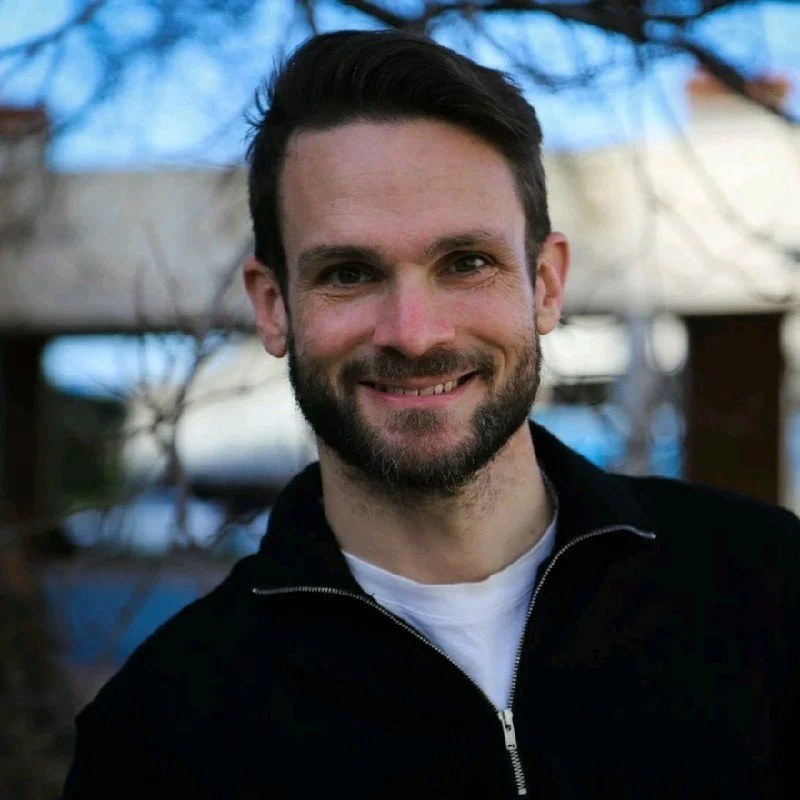Team
-

Dr. Lorenzo Barberis Canonico
Lorenzo received his PhD in Computer Science from Clemson University, setting a record as the youngest doctoral student (23 years old) as well as the person who graduated the fastest (2.5 years). His dissertation was on the uses of prediction markets to train machine learning models. He subsequently worked as a Research Scientist at Stanford in the Biomedical Data Science department.
-

Jacob Kaufmann
Jacob is Cassandra’s co-founder and Chief Technology Officer, pairing big-tech scale with crypto-native ingenuity. Before taking the reins of our engineering vision, he honed his chops at Amazon and then the Ethereum Foundation, where, as a Senior Software Engineer, he built production-grade systems that underpin decentralized finance. A true Rustacean, Jacob lives at the intersection of mechanism design and distributed systems, designing fault-tolerant rails and incentive-aligned protocols that let our products scale without sacrificing trust. That rare blend of Web2 reliability and Web3 innovation fuels Cassandra’s drive to build open, scalable public goods that everyone can access and benefit fro
-

Mel Gaddy
Mel went to trial in federal court on a patent infringement case. Mel’s clients were accused of infringing their competitor’s intellectual property rights—which were held invalid as a result of his team’s work.
-

Dr. Alex Ioannidis
Description Dr. Alexander Ioannidis is an Adjunct Professor in Computational and Mathematical Engineering, where he teaches machine learning and data science, and is a researcher in the Department of Biomedical Data Science at Stanford Medical School. He earned his Ph.D. from Stanford University in Computational and Mathematical Engineering together with an M.S. in Management Science and Engineering (Optimization). He graduated summa cum laude from Harvard University in Chemistry and Physics and earned an M.Phil at the University of Cambridge from the Department of Applied Math and Theoretical Physics in Computational Biology. His research focuses on the design of algorithms and application of computational methods for problems in genomics, clinical data science, and precision health with a particular focus on underrepresented populations in Oceania and Latin America.
-

Patrick Wilson
Patrick W. is a seasoned governance, risk, and legal adviser who turns knotty regulations into clear-cut, actionable guidance for boards and executives. Over 15 years in law—and 13 of those embedded in banks, insurers, and government agencies—he has drafted inter-government agreements, steered major regulatory consultations, and written the board papers that keep leadership both compliant and confident. Patrick built second-line compliance functions from scratch, negotiated New Zealand’s COVID-19 Bank Finance Guarantee Scheme, and taught legal writing, so he knows how to pair rigorous analysis with plain language. Today, as Managing Director of Antifragile Ltd, he applies this blend of strategic counsel and crisp communication to help organizations navigate risk while seizing opportunity—exactly the caliber of expertise that powers Cassandra’s mission.
-

Noah Broome
Noah steers the engineering behind Prophet, our play-to-earn prediction market, drawing on his track record of turning research ideas into sleek, production-ready web apps. A Computer Science student at Clemson University passionate about making complex products feel effortless for users. This blend of front-end craftsmanship and academic rigor makes Noah the ideal architect for Prophet’s real-time game mechanics, scalable marketplace infrastructure, and seamless on-ramps—exactly what our collective-intelligence research demands.
-

David Moore
David A. Moore brings a founder’s grit and an investor’s eye to Cassandra’s Banking-as-a-Service build-out. After leading consumer-payments innovations in both FinTech and FMCG, he launched Installmt, a platform that lets sub-prime borrowers match loan repayments to their actual cash-flow—part of his broader mission to serve under-banked Americans. A Wharton-trained operator, David has since invested in and helped steer Secured Advantage Federal Credit Union, giving him first-hand insight into credit-union compliance, risk, and product economics. That blend of payments know-how, regulated-entity experience, and plain-language communication makes him the ideal architect for the rails, risk controls, and member-centric features at the heart of our future credit union.
Board of Scientific Advisors
-

Dr. David M Rothschild
Dr. Rothschild is an economist at Microsoft Research in New York City. He holds a Ph.D. in applied economics from the Wharton School of Business at the University of Pennsylvania. He has written extensively, in both the academic and popular press. His work pushes the boundaries on varying data and methods: large language models, polling, prediction markets, social media and online data, and large behavioral and administrative data. The work focuses on solving practical and interesting questions including: interactions of humans and LLM-based tools, mapping and updating public opinion, the market for news, effect of advertising, finance, and an economist take on public policy.
-

Sam McClure
Sam McClure is Lecturer in Law and instructor of Startup Law: Sustainability, Stanford Law School’s first program supporting the founder community. Stanford law students, working under the supervision of the Stanford attorney teaching team, provide pro bono legal assistance and support to non-profit and for-profit startups addressing climate and sustainability challenges. Previously, he developed and taught experiential curriculum in collaboration with other business law faculty, including Law 1050: Business, Legal, and Policy Strategy in the Startup Economy. Sam began his career as a corporate associate at Gunderson Dettmer, the leading global law firm for startups and venture capitalists. He now actively advises many venture-backed startups, especially those with a sustainability & social impact focus.
-

Dr. Gary Klein
Gary Klein, Ph.D., authored Sources of Power: How People Make Decisions, and four other books plus three co-edited volumes. He is known for the cognitive models he described, such as the Recognition-Primed Decision (RPD) model, the Data/Frame model of sensemaking, the Management By Discovery model of planning in complex settings, and the Triple Path Model of Insight. He developed methods including the PreMortem method of risk assessment, techniques for Cognitive Task Analysis, the ShadowBox training approach, and also pioneered the Naturalistic Decision Making movement in 1989. Dr. Klein has decades of work experience in dozens of work domains, including military, healthcare, and emergency response.